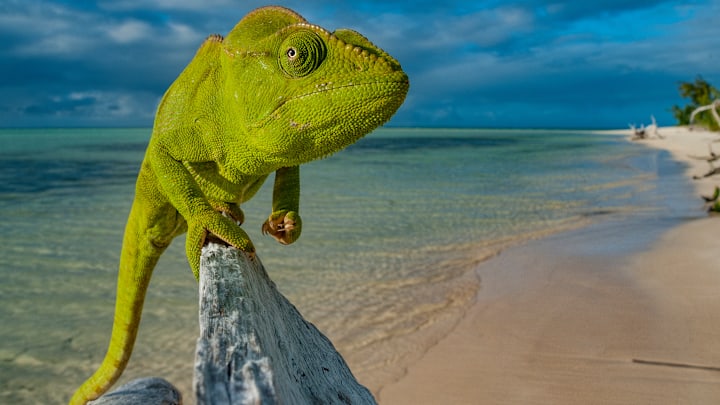The Importance of Coastal Ecosystems for Biodiversity and Human Well-being

Coastal ecosystems, which include mangroves, salt marshes, seagrass beds, and coral reefs, are among the most productive and diverse environments on Earth. These ecosystems play a crucial role in supporting biodiversity, regulating climate, and providing numerous benefits to human societies. Understanding the importance of coastal ecosystems for biodiversity and human well-being is essential for promoting their conservation and sustainable management.
Coastal ecosystems are biodiversity hotspots, supporting a wide range of plant and animal species. They provide habitat, food, and shelter for numerous fish, birds, invertebrates, and marine mammals, many of which are specially adapted to the unique conditions of coastal environments. The diversity of species in coastal ecosystems contributes to the overall health and resilience of these environments. Coastal ecosystems also play a crucial role in maintaining genetic diversity, which enhances the adaptability of plant and animal populations to changing environmental conditions.
One of the primary ecological functions of coastal ecosystems is their role in regulating the Earth's climate. Coastal wetlands, such as mangroves and salt marshes, store significant amounts of carbon in their vegetation and soils, helping to mitigate the impacts of climate change by reducing greenhouse gas concentrations. Seagrass beds and coral reefs also contribute to carbon sequestration and play a role in maintaining water quality and clarity. The preservation and restoration of coastal ecosystems can enhance their carbon sequestration potential and contribute to global efforts to combat climate change.
Coastal ecosystems play a crucial role in protecting coastlines from erosion and storm surges. Mangroves, salt marshes, and seagrass beds stabilize the soil and reduce the impact of waves and currents, preventing the loss of valuable land and protecting infrastructure. During storms and hurricanes, these ecosystems act as natural barriers, absorbing and dissipating wave energy and reducing the force of storm surges. This protective function is particularly important for low-lying coastal areas and islands that are vulnerable to the impacts of extreme weather events and sea level rise.
Human societies benefit from coastal ecosystems in various ways, including food security, livelihoods, and cultural practices. Coastal ecosystems support commercial and subsistence fisheries, providing a vital source of protein and income for millions of people worldwide. The rich biodiversity of coastal environments supports recreational activities, such as fishing, boating, and snorkeling, which generate economic revenue and promote environmental awareness. Coastal ecosystems also offer opportunities for tourism and ecotourism, enhancing the quality of life for local communities and contributing to economic development.
Coastal ecosystems hold cultural and spiritual significance for many indigenous and local communities, forming an integral part of their heritage and identity. Traditional knowledge and practices related to coastal ecosystems are essential for the sustainable use and conservation of these environments. Recognizing and respecting the rights and knowledge of indigenous and local communities is crucial for promoting socially inclusive and culturally appropriate conservation initiatives.
Despite their importance, coastal ecosystems are under significant threat from human activities and environmental pressures. Coastal development, pollution, overfishing, and climate change are leading to the degradation and loss of coastal habitats. The conversion of coastal areas to agriculture, urban development, and infrastructure projects reduces the extent and health of coastal ecosystems. Pollution from industrial discharges, agricultural runoff, and plastic waste contaminates coastal waters, harming marine life and disrupting ecological processes. Climate change, driven by increased greenhouse gas emissions, affects the health and resilience of coastal ecosystems, leading to shifts in species composition and increased vulnerability to extreme weather events.
Efforts to conserve and sustainably manage coastal ecosystems are essential for mitigating these threats and ensuring their continued provision of benefits. Protecting existing coastal habitats through the establishment of marine protected areas (MPAs), community conservation initiatives, and legal frameworks is a critical strategy. Restoration projects, such as replanting mangroves, restoring salt marshes, and rehabilitating coral reefs, can help rehabilitate degraded coastal areas and enhance their resilience. Sustainable management practices, such as responsible fishing, pollution control, and climate adaptation, can balance the use of coastal resources with conservation goals, ensuring the sustainability of coastal ecosystems.
Engaging local communities and stakeholders in coastal conservation is vital for the success of these efforts. Community-based management approaches can empower local people to take an active role in protecting and sustainably using coastal resources. Education and awareness campaigns can foster a greater appreciation of coastal ecosystems and encourage sustainable behaviors. International cooperation and policies play a crucial role in addressing the global challenges facing coastal ecosystems. Initiatives such as the United Nations' Sustainable Development Goals, the Convention on Biological Diversity, and the Paris Agreement provide a framework for coordinated action to protect and restore coastal ecosystems.
In conclusion, coastal ecosystems are vital for supporting biodiversity, regulating climate, and providing numerous benefits to human societies. Their ability to sequester carbon, protect coastlines, and support diverse species underscores their ecological and economic importance. However, coastal ecosystems face significant threats from human activities and environmental pressures. Conserving and sustainably managing coastal ecosystems is essential for ensuring their continued provision of ecosystem services and benefits. By recognizing the value of coastal ecosystems and taking concerted action to protect and restore them, we can preserve these vital environments for the benefit of present and future generations.